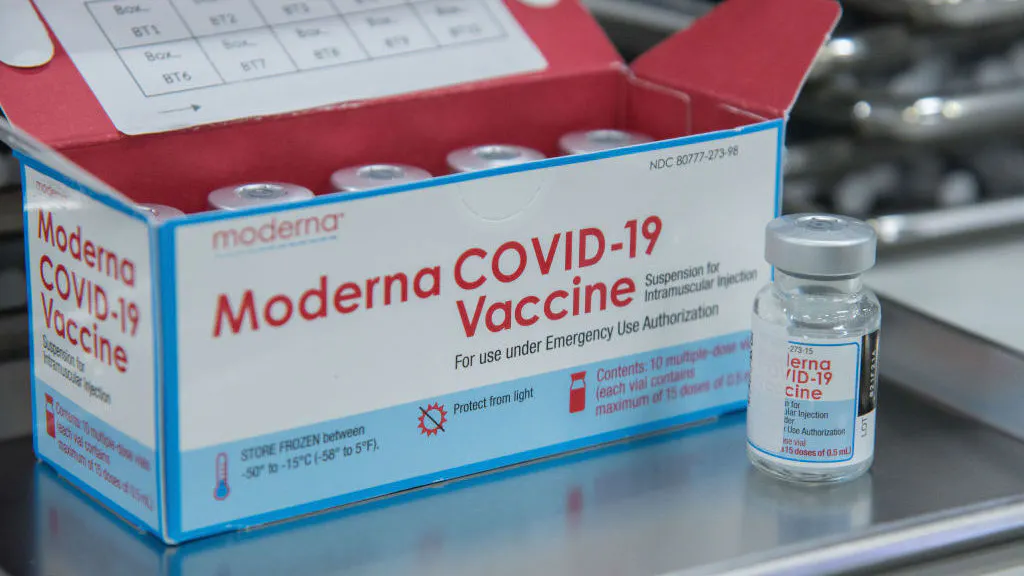After two-and-a-half years of COVID-19, we’re all moving on. Sure, the virus is still there, albeit generally less dangerous with the Omicron variant, but many Americans no longer don masks and regular life has mostly returned.
The whole “moving on” thing has one serious effect on vaccine makers.
“It’s sad to say, I’m in the process of throwing 30 million doses into the garbage because nobody wants them,” Moderna CEO Stéphane Bancel said this week. “We have a big demand problem.”
Stéphane Bancel, CEO of Moderna:
"it's sad to say, I'm in the process of throwing 30 million doses in the garbage because nobody wants them. We have a big demand problem."
Notes that China doesn't want any MRNA products and how there's 7 billion doses.https://t.co/xfKZbVT8RJ pic.twitter.com/WVboChDma7
— Efrain Flores Monsanto 🇨🇦🚛 (@realmonsanto) May 23, 2022
Speaking to an audience at the World Economic Forum, Bancel also said efforts to contact various governments have failed.
“We right now have governments – we tried to contact … through the embassies in Washington. Every country, and nobody wants to take them,” he said.
“The issue in many countries is that people don’t want vaccines,” he added.
https://youtu.be/K6N22wFKWFI
Bancel’s announcement comes just after the World Health Organization (WHO) issued a stern warning: the COVID-19 pandemic is “most certainly not over,” warned WHO head Tedros Ghebreyesus.
Although deaths from a current variant of SARS-CoV-2 , known as Omicron, have dropped precipitously, the WHO head said “we lower our guard at our peril,” according to the United Nations.
“So, is COVID-19 over? No, it’s most certainly not over. I know that’s not the message you want to hear, and it’s definitely not the message I want to deliver,” he said.
Ghebreyesus on Sunday told officials gathered in Geneva for the opening of the World Health Assembly’s annual meeting that declining testing and sequencing means “we are blinding ourselves to the evolution of the virus.” In addition, he said that while billions are vaccinated against the virus, nearly one billion people in lower-income countries still are not.
While some 60% of the world’s population is vaccinated, he said, “it’s not over anywhere until it’s over everywhere.”
Ghebreyesus mentioned that “reported cases are increasing in almost 70 countries in all regions,” the U.N. reported.
He noted that the virus is spreading rapidly in Africa, where the vaccination rate is the lowest worldwide. And he said while there appears to be ample supply of the vaccine, there is “insufficient political commitment to roll out vaccines” in some countries according to the U.N., while there remain gaps in “operational or financial capacity” in other nations.
“In all, we see vaccine hesitancy driven by misinformation and disinformation,” Ghebreyesus said. “The pandemic will not magically disappear. But we can end it. We have the knowledge. We have the tools. Science has given us the upper hand,” he said, calling on countries to work together to reach 70% of vaccination coverage.
Ghebreyesus also said the virus is staying ahead of vaccines. “This virus has surprised us at every turn – a storm that has torn through communities again and again, and we still can’t predict its path, or its intensity,” he said.
“The WHO chief also warned that increasing transmission means more deaths and more risk of a new variant emerging, and the current decline of testing and sequencing means ‘we are blinding ourselves to the evolution of the virus,'” the UN said in its statement.
Joseph Curl has covered politics for 35 years, including 12 years as White House correspondent for a national newspaper. He was also the a.m. editor of the Drudge Report for four years. Send tips to [email protected] and follow him on Twitter @josephcurl.

Continue reading this exclusive article and join the conversation, plus watch free videos on DW+
Already a member?

.png)
.png)

